Introduction to Hungary
Hungary is a must-see for anyone interested in Europe’s history, music, cuisine or culture. Hungarians have contributed some of the world’s best musicians, world class cuisine and a glorious medieval legacy. Budapest is a cosmopolitan city of old lanes and flashy people and has a lot to offer to everyone. The surrounding countryside is dotted with castles, fortresses, monasteries and beautiful villages and towns that hark back to the days when Hungary was a great empire. The Danube River flows across the country and right through Budapest — you should take the opportunity to float down this 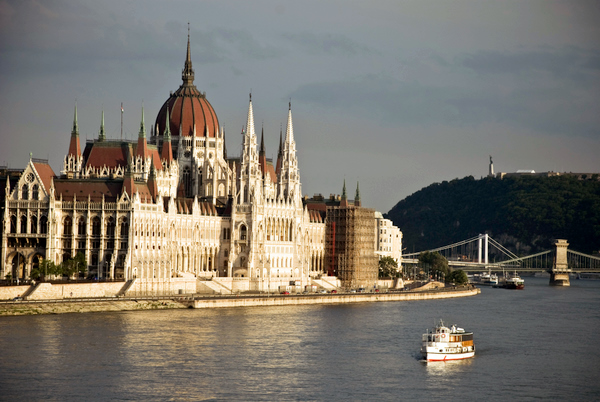 great river while in Hungary.
great river while in Hungary.
Passports & Visas
Passports are required to enter and leave Hungary. Visas are not required for US citizens for visits of less than 90 days. For longer visits, contact the nearest Hungarian embassy. Hungary is a party to the Schengen Agreement, which eases travel in 24 different European countries.
Obtaining a US passport
The US Government Website is where to start.
Visa information
Embassy of the Republic of Hungary
3910 Shoemaker Street N.W.
Washington, D.C. 20008
Tel (202) 362-6730
American Offices
The U.S. Embassy in Budapest
Szabadság tér 12
H-1054 Budapest
Tel: (36)(1) 475-4400 or (36)(1) 475-4703
After-hours emergency calls — for U.S. citizens only: (36)(1) 475-4703/4924
The Consular Section’s fax is (36)(1) 475-4188 or (36)(1) 475-4113
Hungary Tourist Information
Culture and History of Hungary
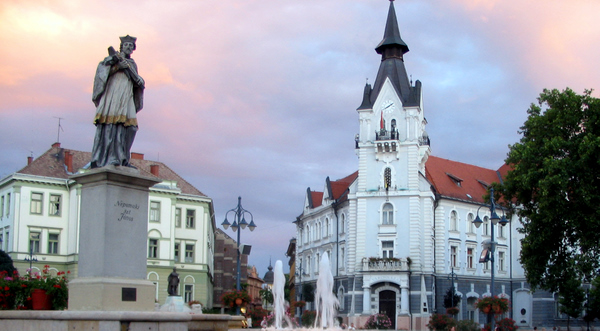 There truly is too much to tell when it comes to Hungary’s storied history. Hungarians speak a language of the Finno-Ugric family, which ties them to the riders of the steppes that swept across Asia more than 100 years ago. In the 9th century, Arpad presided as the first ruler of the Magyar people (Hungarians), establishing a loose confederation of tribes that struck fear into the hearts of then unsettled Europe.
There truly is too much to tell when it comes to Hungary’s storied history. Hungarians speak a language of the Finno-Ugric family, which ties them to the riders of the steppes that swept across Asia more than 100 years ago. In the 9th century, Arpad presided as the first ruler of the Magyar people (Hungarians), establishing a loose confederation of tribes that struck fear into the hearts of then unsettled Europe.
The Kingdom of Hungary was founded by Arpad’s great-grandson, King Stephen the First, who converted to Christianity and was crowned in December 1000, in the capital, Esztergom. When the Mongols invaded and destroyed much of the kingdom in the 13th century, the kings of Hungary ordered the construction of hundreds of walled fortresses and castles across the nation to protect from a second invasion. This network of fortresses worked well and Hungary was able to provide refuge for a host of defeated, harried peoples stumbling in from the east just ahead of the Mongols. Repeated conflicts with the rising Ottoman Empire eventually led to Hungary’s decline and dismemberment in the late 16th century. The Hapsurg Kings of Austria “allied” themselves with the Hungarians and the Austro-Hungarian Empire was born. This Empire would last until the end of WWI, when all of the old Empires were shattered by defeat or revolution or both. Hungary fought on the side of the Germans in both World Wars and suffered accordingly, when the Treaty of Trianon in 1920 took away 70% of the nation’s territory. Subsequent to WWII, the Soviets occupied the country and established a Communist dictatorship. The Hungarians rose up and were summarily crushed in 1956. Their struggle gave them great standing in the West and they were the first country to open their borders — with Austria — which hastened the fall of the USSR. Since the end of the Cold War, Hungary has struggled to make a free market economy work, and today the country is trucking along just fine as evidenced by the new construction that is such a common and encouraging sight across much of the urban landscape.
Currency in Hungary
Hungary uses the Forint. The exchange rate is currently(June 2010) 1USD = 200.370HUF
Driving in Hungary
Roads in Hungary are generally in good condition, although there is construction going on throughout the country, especially in the capital. Rural roads are quite narrow, badly lit and vary in condition from poor to good.
According to the US State Department, “Hungary recognizes international driver’s permits (IDP) issued by the American Automobile Association (AAA) and the American Automobile Touring Alliance when presented in conjunction with a state driver’s license. U.S. driver’s licenses will be accepted in Hungary for one year after arrival provided that a certified Hungarian translation has been attached to the license. Those with IDPs do not need to have the license translated, but must present both IDP and state driver’s license together. After one year in Hungary, U.S. citizens must obtain a 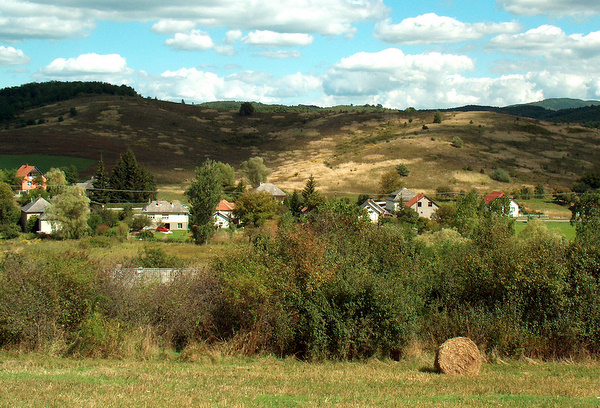 Hungarian driver’s license.”
Hungarian driver’s license.”
Electricity in Hungary
Electricity here is run off of 230V, 50Hz, so American travelers should bring converters or use local appliances.
Emergency Numbers in Hungary
Ambulance: 104 or 350-0388
Police: 107
Fire: 105
24-hour English speaker: 112
Etiquette in Hungary
Hungary is a family-oriented society with Central Asian roots. Close friends kiss each other on the cheek when greeting; although a predominantly male culture, women are treated as equals, but you should address a woman after she has addressed you first, or has been introduced if accompanied. You might be invited out for horseback riding, if so, accept. In terms of other etiquette, standard procedure applies i.e. be polite and respectful and you should be fine.
Public Hours in Hungary
Business hours in Hungary vary according to the store, but are generally from 9am to 6pm for smaller stores, more flexible for mom and pop shops and 7am to 7pm for larger supermarkets and multinational complexes. Banks stay open until 3 or 4pm, but close early on Friday. Post offices stay open a bit later, until roughly 5pm.
Safety
Hungary has a very low rate of violent crime, according to the US State Department, but there are definitely thieves and pickpockets as in every country. Take standard precautions with your money, wallets and valuables and be aware of your surroundings at night and you should be fine.
Time Zone
Hungary is in the Central European Time Zone (GMT+1)
Tipping in Hungary
Tipping is generally recommended in Hungary. A 10% tip for good service is normal, encouraged and appreciated; and feel free to give more if the situation warrants it.
Weather in Hungary
Landlocked as it is, Hungary’s temperature can be fickle and extreme. Summers can be abnormally hot or just temperate, then change suddenly. Same goes for the duration and severity of winter. The Danube often freezes over in winter and flows strong in the summer. Hungary is surrounded by mountains and much of the country is low-lying, so there is often fog.
Getting Around Hungary
Air Transportation
Malev Hungarian Airlines is a major carrier with service all over Continental Europe, to North America, to the Middle East and East Asia as well. All major and minor airlines in Europe provide scheduled flights to Budapest.
Boats and Ferries
There is a hydrofoil that runs from Vienna to Budapest along the Danube River on a daily basis from April to October. Visit the Mahart site to book tickets and learn more about the service. This same company also offers inner-Hungarian trips up and down the Danube.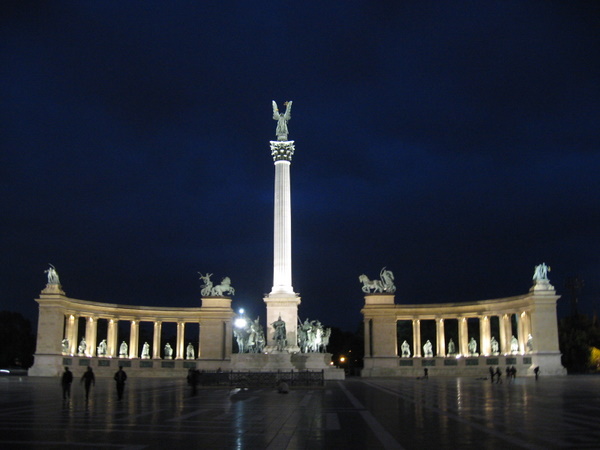
Rail
Hungary is landlocked so the connections via rail and bus with its neighbors are well-established. You can get to Budapest via any major city in Europe with Eurolines (bus) or a Eurorail Pass. The Hungarian rail agency links up with all major European railways and has various specials available for travelers. Inside Hungary, the bus system works very well and is inexpensive to boot. Volanbusz is the national carrier and serves all of the smaller towns in the country and most, if not all, of the provincial villages and towns. The bus system is set up for locals, so bring your pocket translator and remember to be patient when buying tickets or finding the right bus.
Car Rental
You have to be 21 years old and have insurance to rent a car in Hungary. All of the major companies have a presence in Budapest and there are a few other companies that you might want to check out as well, to compare prices and services, such as locals Steverent and Nova.
Health
Hospitals in Hungary have adequate care, but may not be what you are used to at home. Doctors might speak English, but also might not. We recommend checking out the World Health Organization site for Hungary for more information.
Personal Medications
No permit is required to carry medication in your luggage. However, you should pack your medication in its original containers and/or have your doctor’s prescription with you. Customs officials will have to be satisfied that you are not 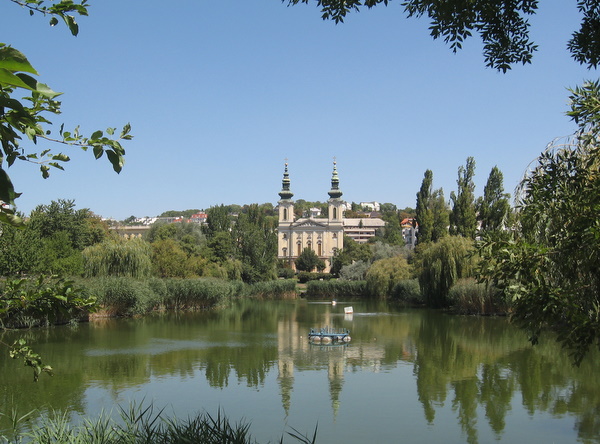 importing more than would be necessary for your personal use, taking into account the drug type and length of stay (for no more than three months).
importing more than would be necessary for your personal use, taking into account the drug type and length of stay (for no more than three months).
Lodging in Hungary
There are a host of sites that offer booking information for hotels, hostels and B&Bs, chief among them is Budapest Hotels, with a lot to choose from plus extra information on Hungary’s famous spas, sights and other useful info.
Main Sights in Hungary
Budapest – capital of one of the most storied nations in Europe
The Danube Bend – a breathtaking sight surrounded by medieval castles and quaint towns
Esztergom – historic seat of Hungarian Catholicism and medieval capital
Lake Balaton – largest lake in Europe
Public Holidays in Hungary
Most of Hungary’s holidays are standard European fare, except for March 15th, the anniversary of the uprising against Russian rule and August 20th, National Day.
2010
1 Jan New Year’s Day
15 Mar Anniversary of 1848 uprising against Austrian rule
5 Apr Easter Monday
1 May Labour Day
24 May Whit Monday
20 Aug National Day (Feast of St Stephen)
23 Oct Republic Day (Anniversary of 1956)
1 Nov All Saints’ Day
24 Dec Christmas Eve
25 Dec Christmas Day
2011
1 Jan New Year’s Day
15 Mar Anniversary of 1848 uprising against Austrian rule
25 Apr Easter Monday
1 May Labour Day
13 Jun Whit Monday
20 Aug National Day (Feast of St Stephen
23 Oct Republic Day (Anniversary of 1956)
1 Nov All Saints’ Day
24 Dec Christmas Eve
25 Dec Christmas Day
26 Dec Boxing Day
Telephones in Hungary
Dialing Procedures
You can make international calls from a variety of places in Hungary, shopping centers, pay phones, the post office and your hotel. It is a good idea to buy a calling card for international and national calls. For a good breakdown of the various city codes in Hungary and where you can buy a calling card, check out Budapest Hotels.
Useful Country Codes:
USA and Canada 1
UK 44
Returning to the US
Customs,VAT & Duty Free
For Americans going to or returning from Hungary, TravelDocs has information on customs allowances, but you should always check the Hungarian Embassy site for more information.
Value Added Tax (VAT or IVA) Refund Information
In Hungary there is a 20 % tax on all goods, called ÁFA (Value Added Tax), which is included in the price. Foreign visitors can get a refund of their VAT purchases when they leave the country . As in other European countries, there is a system for a refund of the VAT called Europe Tax-free Shopping.
Follow these instructions
After your purchase, ask the shop clerk for your Fiscal Receipt and VAT Reclaim Form, which is your export and tax refund document. After you complete the form, you’ll receive a Tax-free Envelope which will show the offices, where you can receive your refund in cash. A service charge is deducted when the refund amount is calculated.
If you paid cash in the store, be sure to keep your receipts from changing money into Hungarian Forints, along with your receipt and VAT Reclaim Form. If you used your credit card, keep the credit card slip along with the receipt and VAT Reclaim Form.
As you leave Hungary, have your documents stamped at the border by Hungarian Customs.
You may receive your VAT refund in cash at Budapest Airport and at all border crossings at IBUSZ Travel Agency Offices. If a cash refund is not possible, you should send all your original documents to the office named on the Tax-free Envelope. You will then receive the credit to your credit card or bank account or a bank cheque to your home address.
Further information on Tax-free Shopping is available in the tax-free shops, Europe Tax-free Shopping information leaflets and Shopping Guides distributed in hotels, tourist offices, airports and business centers.
Duty Free
If you are a U.S. or Canadian resident, you may qualify for a personal exemption which allows you to bring goods of a certain value into the country without paying customs duties, excise taxes, or Value Added Tax.


Comments